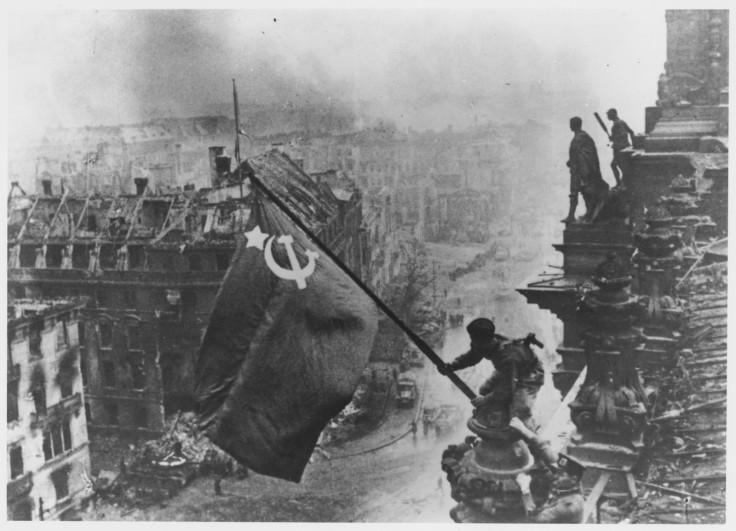Book reveals painful legacy of German children fathered by Allied soldiers in wake of WWII
Children fathered by Allied soldiers in post-WWII Germany faced discrimination, threats and abuse

Hundreds of thousands of children were fathered by troops that occupied Germany after World War Two, according to a controversial new study to be published on Monday.
Around 400,000 "children of occupation" were fathered by rape or affairs between German women and occupying troops, Deutsche Welle reported on Friday.
Around two million German women are thought to have been raped by Soviet soldiers in the months after German forces in Europe surrendered in August 1945. The estimates that 300,000 of these sexual assaults led to at least 300,000 children being fathered members of the Soviet Red Army.
French, US and UK troops are also known to have raped German women living in the four occupation zones, which were controlled by Russia, France, the UK and US military forces. France was the only country granted these children citizenship.
The study appears in a German-language book called "Bastards!" The Children of Occupation in Germany after 1945 ("Bankerte!" Besatzungskinder in Deutschland nach 1945), by Professors Silke Satjukow of the University of Magdeburg and Rainer Gries of the University of Jena.
The professors said that "thousands" of children were also the result of love affairs.
Whatever their heritage, the occupation children were discriminated against and ostracised their entire lives. Many have spent decades fruitlessly searching for their fathers, or were abused for being bastards born out of wedlock or children of "the enemy."
As the Allied soldiers were not subject to German law, most young mothers did not receive any financial help, while others hid their children's paternity out of fear. After the occupation, many of the men returned to Russia, the US, UK or France, and could not be located.
"The children were ostracised because in the eyes of society they born amid a burden of guilt," Satjukow said. They wanted to "finally trace their family to the full and in doing so find peace".
The subject was taboo for many years in Germany, and the first major study was conducted in 2009 by the University of Greifswald, in North East Germany. The same year, the film – A Woman in Berlin – told the story of a German woman who was gang raped by Soviet soldiers.
"In West Germany the topic was taboo because the Germans were seen as guilty for the war," said Sibylle Dreher, a member of the Association of German Expellees, at the time. "And in Soviet-occupied East Germany, people weren't allowed to talk about the abuse committed by the Soviet soldiers."
© Copyright IBTimes 2024. All rights reserved.





